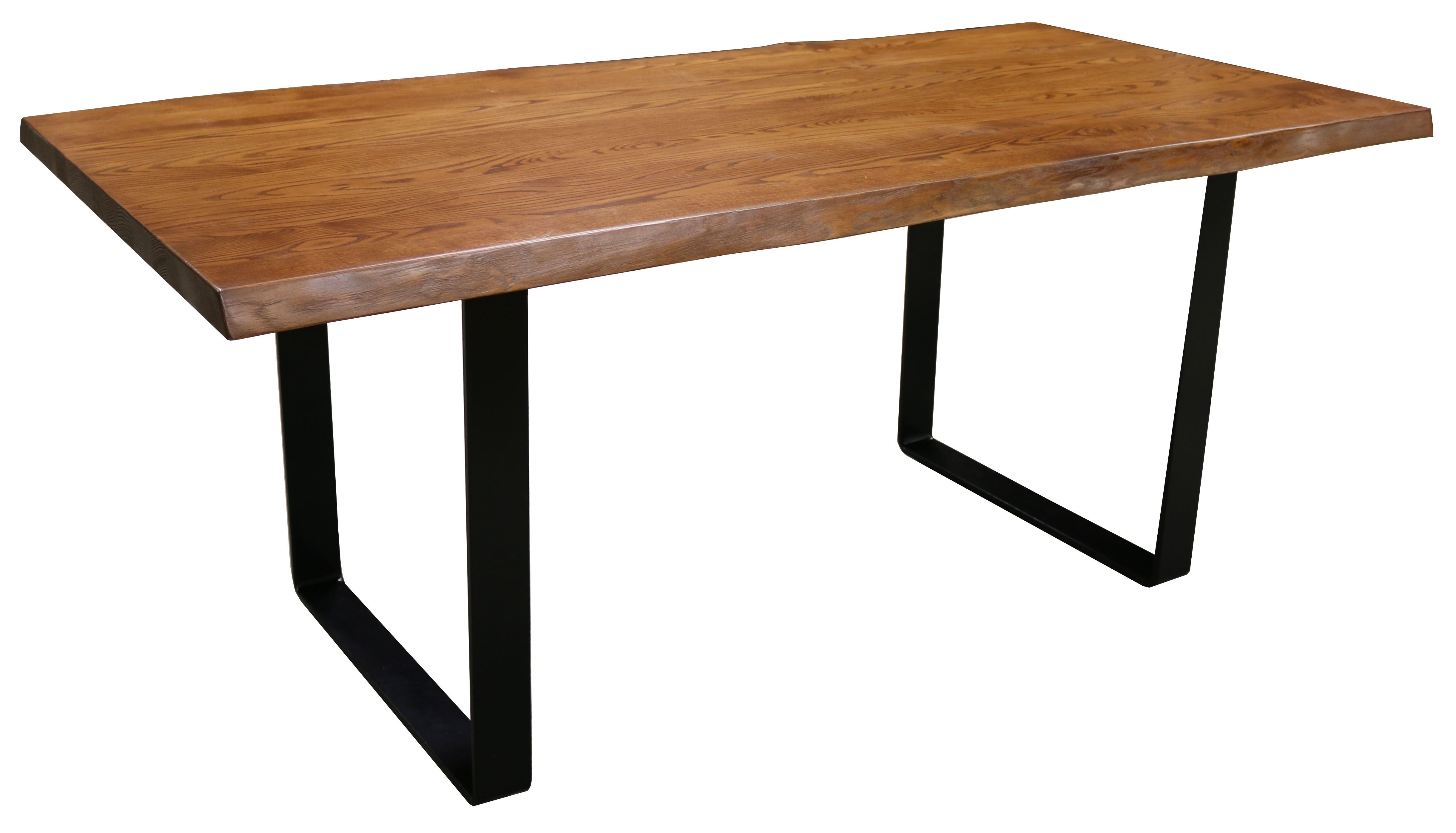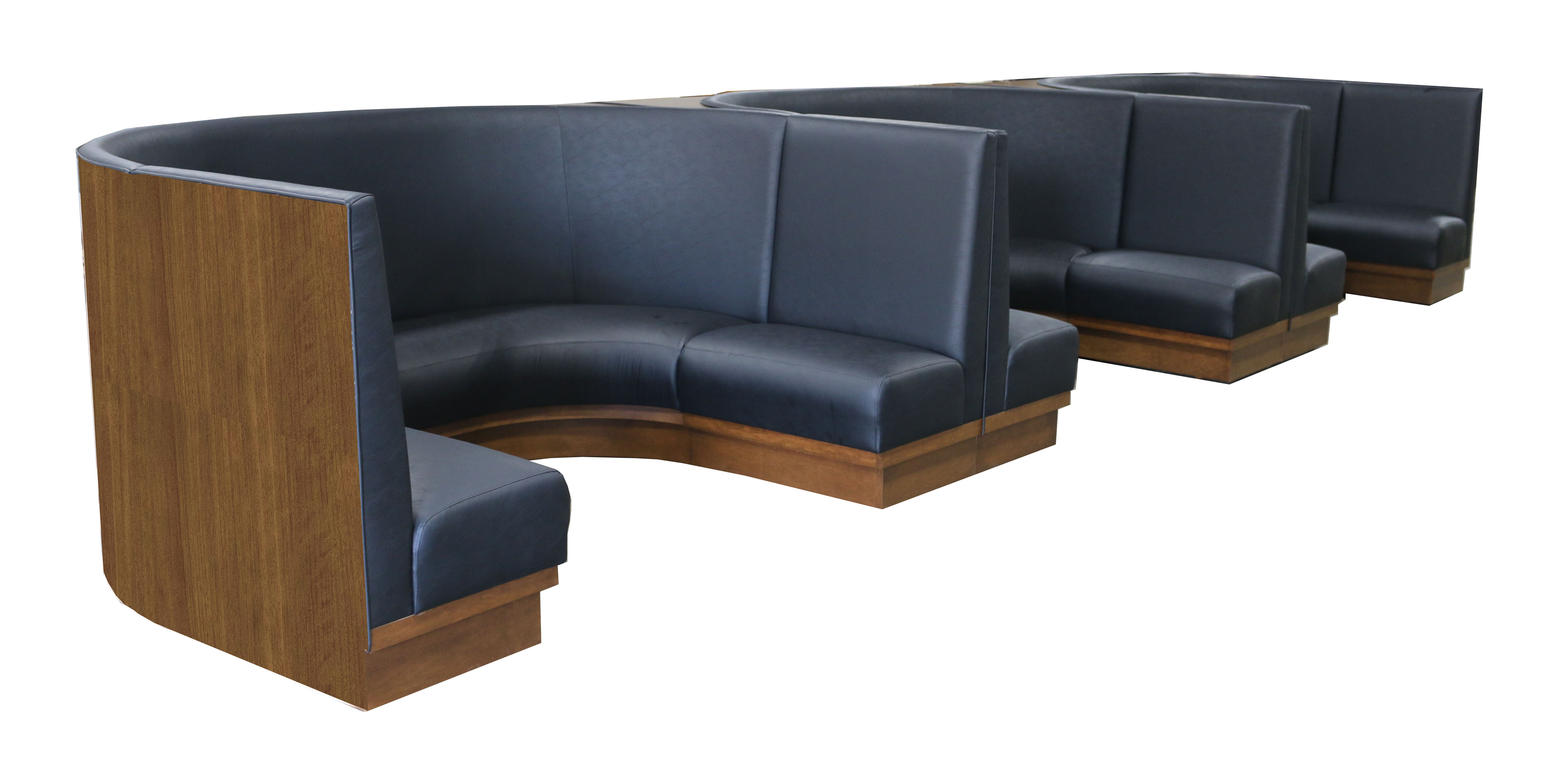Foam and Cleaning Information
Foam is a versatile material, and its performance is gauged by two distinct characteristics: density and firmness. These independent attributes allow you to tailor your choice to meet your requirements precisely.

Tables
We’ll enhance the ambiance and functionality of your hospitality or commercial setting with a diverse range of tables, including laminate, solid wood, live edge, and drop-leaf options. Find the ideal table to seamlessly integrate aesthetics and functionality, creating an inviting atmosphere.

Booths & Banquettes
We present an extensive selection of booths and banquettes suitable for various commercial settings. From classic high-back booths to contemporary designs and snug banquettes, our in-house craftsmen and designers will tailor booths to your exact specifications.
Foam Density
For example, you can choose a dense foam that remains super soft or a firm foam that may not be as dense.
Definitions:
- Longevity and Quality: Density is a crucial indicator of foam’s longevity and overall quality.
- Cellular Composition: Dictated by the size and thickness of individual cells within the foam, density significantly impacts the material’s performance.
- Measurement: Foam density is measured by weighing one cubic foot of the material. For example, a cubic foot block of 3-pound foam will weigh 3 pounds. Generally, the denser the foam, the higher the quality, ensuring prolonged durability.

Firmness
Definitions:
- Physical Feel: Firmness pertains to how the foam feels and its pressure resistance.
- ILD Measurement: Measured by determining the pressure, in pounds, required to compress a 15” by 15” by 4” foam sample one inch, using a 50 square inch circular indenter.
- ILD Values: Firmer foam is characterized by a higher ILD, while softer foam registers a lower ILD. ILD values typically range from 8 to 70, with some instances reaching as high as 150.

Firmness
Definitions:
- Physical Feel: Firmness pertains to how the foam feels and its pressure resistance.
- ILD Measurement: Measured by determining the pressure, in pounds, required to compress a 15” by 15” by 4” foam sample one inch, using a 50 square inch circular indenter.
- ILD Values: Firmer foam is characterized by a higher ILD, while softer foam registers a lower ILD. ILD values typically range from 8 to 70, with some instances reaching as high as 150.

Cleaning Information
|
DC |
Dry clean only |
|
S |
Spot clean only with a water-free cleaning solvent. Do not saturate or use water. When cleaning a spill, blot immediately to remove spilled material |
|
W-S |
Spot Clean with upholstery shampoo and foam from a mild detergent or a mild dry-cleaning solvent. Do not saturate. |
|
W |
Spot clean only with a water-based shampoo or foam upholstery cleaner. Do not oversaturate or use solvents to spot clean. Blot immediately to remove any spilled material. |
|
X |
Clean only by vacuuming or light brushing with a non-metallic stiff bristle brush. Do not use water or solvent-based cleaner. |
|
Leather |
The most easy-to-care-for material. Use normal dusting and occasional mild soap and damp cloth. Never wax, polish, or oil. |
|
Vinyls |
Make sure you protect vinyl from hair and body oils. Wash with warm water and mild soap. |
|
Crypton |
Crypton has special cleaning instructions. View www.cryptoncare.com for instructions. |
|
Flock Fabrics |
Spot clean only with a water-based shampoo or foam upholstery cleaner. Do not overwet or use solvents to spot clean. Use cautious agitation or rubbing while the fabric is damp, as flock fabrics are sensitive to pile distortion, and texture changes with too much agitation. Use extreme caution if using a professional cleaning service. Allow to dry at least 24 hours before use after cleaning. |




